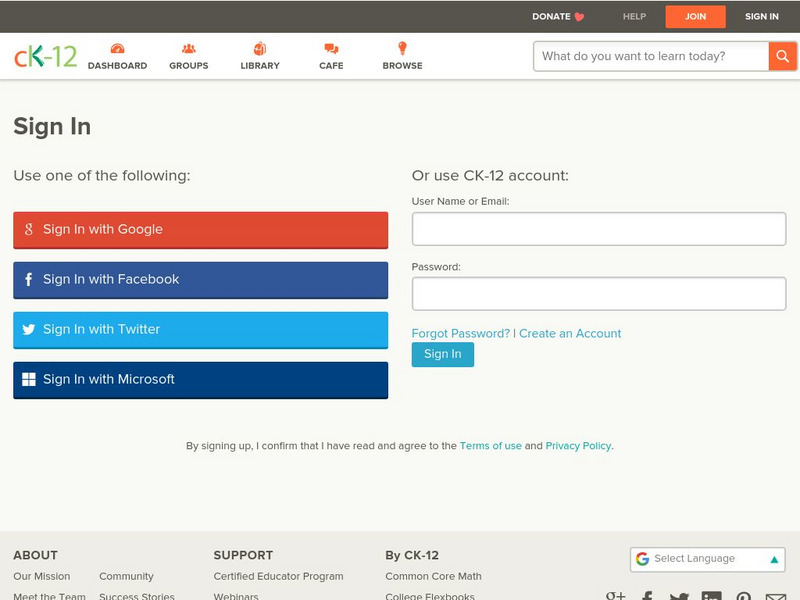Science Matters
Crawly Composters
Get your hands dirty with an interactive lesson that showcases the process of decomposing and returning nutrients back into the soil. After building a compost pile, pupils regularly observe the...
EngageNY
Nonlinear Models in a Data Context
How well does your garden grow? Model the growth of dahlias with nonlinear functions. In the lesson, scholars build on their understanding of mathematical models with nonlinear models. They look at dahlias growing in compost and...
Cal Recycle
Conserving Natural Resources
Trying to plan an engaging elementary science unit on natural resources? Conserve your energy! This five-part series of lessons and hands-on activities has exactly what you need to teach young scholars about the importance of conservation.
Core Knowledge Foundation
Taking Care of the Earth Tell It Again!™ Read-Aloud Anthology
A read-aloud anthology closely examines human impact on the Earth while boosting reading comprehension skills. Through stories, scholars examine the concepts of natural resources, pollution, garbage, and recycling and brainstorm...
Texas Commission on Environmental Quality
Environmental Sciences
Whether you are teaching environmental science in junior high or studying recycling in kindergarten, there is something for all in this set of lessons designed for environmental education. The 110-page packet comes with tips for...
PBS
The Lowdown — Rot and Rubbish: The Rancid Truth about How Much Food We Waste
Compare waste a percent at a time. The resource contains an infographic on food waste. Using images, the informative activity describes the amount and types of food waste that occur. Pupils compare the percentage of waste from their...
Curated OER
The Trash We Pass
Where does our garbage go? What is the difference between a recyclable and non-recyclable item? Pose these important, but often overlooked, questions to your class and invite them to consider the lasting and damaging effects of the...
University of Missouri
Microbes in Action: Classroom Activities: Composting by Microbes
A science experiment to observe how materials decompose over time, By recording the smell, appearance, and movement of materials over three weeks, students will be able to make conclusions about their decompositions. Students will also...
TED Talks
Ted: Ted Ed: Vermicomposting: How Worms Can Reduce Our Waste
Nearly one third of our food ends up in the trash can. Matthew Ross details the steps we can all take to vermicompost at home, and why it makes good business sense to do so. [4:29]
Other
City of Phoenix: Recyclesaurus Activity Book [Pdf]
This activity book teaches about reducing, reusing, and recycling materials. Students can decode words, color, do a word scramble, and learn how to compost. Written in both English and Spanish.
ABCya
Ab Cya: Litter Critters Learn to Sort and Recycle
Learn the basics of recycling with the Litter Critters! Kids will sort trash into four different litter categories: recyclables, compost, electronic waste, and landfill waste. In Easy Mode, users sort trash into one category of litter at...
CK-12 Foundation
Ck 12: Biology: Anaerobic vs Aerobic Respiration
[Free Registration/Login may be required to access all resource tools.] Describes aerobic or anaerobic respiration.
Other popular searches
- Worm Composting
- Composting Third Grade
- Trash & Recycling Composting
- Importance of Composting
- 2 Liter Bottle Composting
- Composting Temperature
- Science of Composting
- Classroom Composting
- Worms and Composting
- Lesson Plans on Composting
- Composting Tag
- Composting Box









